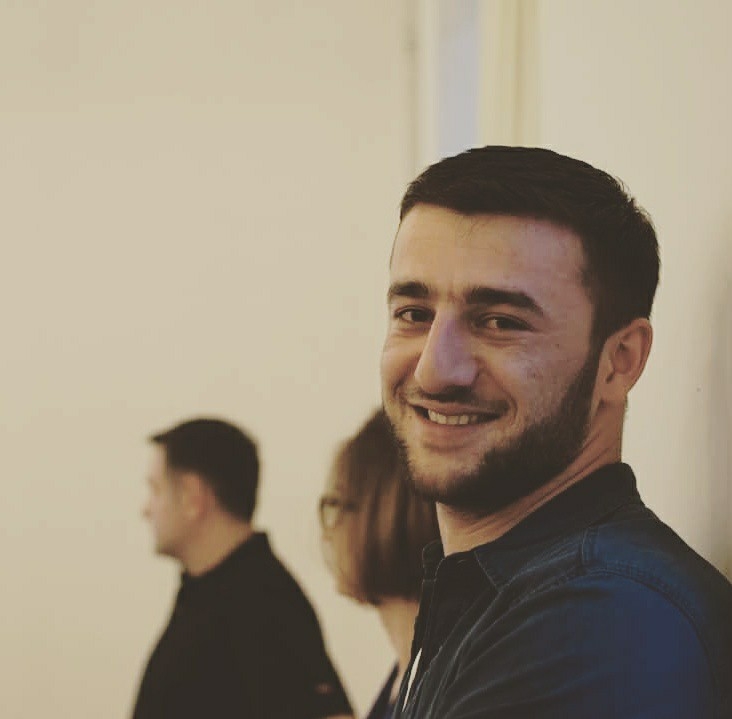
 Toys on sale in shops and in the streets in Georgia contain substances toxic to children’s health. Many sellers do not know where the toys come from, and the authorities have so far failed to regulate them.
Toys on sale in shops and in the streets in Georgia contain substances toxic to children’s health. Many sellers do not know where the toys come from, and the authorities have so far failed to regulate them.
Toys for children contain potentially life threatening substances in Georgia, according to a new report by the Centre for Strategic Research and Development of Georgia (CSRDG), a Tbilisi-based think-tank. CSRDG sent 10 toys bought from different stores in Georgia to Germany, to be examined in the Eurofins Scientific Company laboratory. The lab found that nine out of ten of the examined toys contained the chemical compound DEHP, a chemical threat to children’s health.
Nana, 73, has been selling toys in the marketplace near the railway station for the last three years. She has a stall in the street. She told us that at first she sold socks and other small items. Now she sells toys and phone accessories.
‘I have products from Ukraine. They are more expensive but better quality. I also have products from China. Chinese toys are always cheaper’, she says.
Nana says that she does not have any information on whether the toys she is selling may be dangerous for children, but she doesn’t believe that they could be harmful.
‘I think this might be rumours in the wake of the recent scandal surrounding clearing the streets from vendors. I don’t believe it’, she says.
Another vendor who sells toys told us that he doesn’t know where the toys are made. He buys them here in bulk and then resells them.
‘How can a toy harm anyone, it’s just a plastic’, he told us, wishing not to reveal his name.
We spoke to Pepela, a Georgian chain of toy shops, who told us that every toy in their shops comply with criteria for the European market, and that safety standards are followed.
‘Our products are absolutely harmless. We have strict quality control and each product has its own certificate’, she said.
But toys in large toy shops are usually expensive compared to the toys sold in streets. Cheap toys are very popular in Georgia; they can be found in smaller shops, as well as in streets, in marketplaces, and in underground road crossings.
Georgia’s international commitments

IPEN, an international coalition of organisations fighting to reduce the use of toxic chemicals, conducted research in 2016 across former soviet republics. They discovered that toys in these countries contained large quantities of lead, mercury, and other hazardous substances.
Georgia is a signatory of the EU directive on general product safety, which obliges them to allocate competent persons, or set up a government body, to monitor whether products comply with safety regulations.
According to the directive, Georgia should take measure for every kind of product which might contain hazardous substances, and where there are risks, should warn vendors and customers. Where dangerous products are discovered, they should halt advertising for the product and take measures to completely ban them from the market. Georgia is obliged to fulfill this directive by September 2019, but the ombudsman writes that by that time, many children could be harmed.
No safety control for toys in Georgia

Georgia’s Product Safety Code states that manufacturers and traders are obliged to sell only safe products, but there are no mechanisms to monitor products on the market.
On 15 March, the Public Defender published recommendations for the government to take measures to control the market.
‘It should be noted that international legal acts and the national legislation impose positive and negative obligations on the state to take effective measures in order to protect the health and life of minors, which may be endangered by the lack of control’, the statement reads.
‘The Public Defender considers that, given the results of the examination carried out by the Centre for Strategic Research and Development, it is necessary [for] the Government to take effective measures immediately and implement the EU Toy Safety Directive [by] September 1, 2019, in order to protect the best interests, health and safety of minors’, The Public Defender wrote.
Giorgi Chitadze, representative of the Ministry of Economy, told Radio Liberty that the ministry has prepared legislative amendments to set up an effective body to monitor the market.
CSRDG has appealed to the Revenue Service for information on whether toys are inspected when imported. In their response, the Revenue Service stated that there is no law in Georgia obliging the Customs Service to monitor the safety of toys.
Georgia’s child mortality rate, the number of deaths of children under the age of five, is one of the highest in Europe and the post-soviet space. According to the World Bank, 12 children under five died in Georgia in 2015 for every 1000 live births, according to Save the Children, an international children’s rights group, in 2013, this number was 13.




 1 April 2017
1 April 2017



